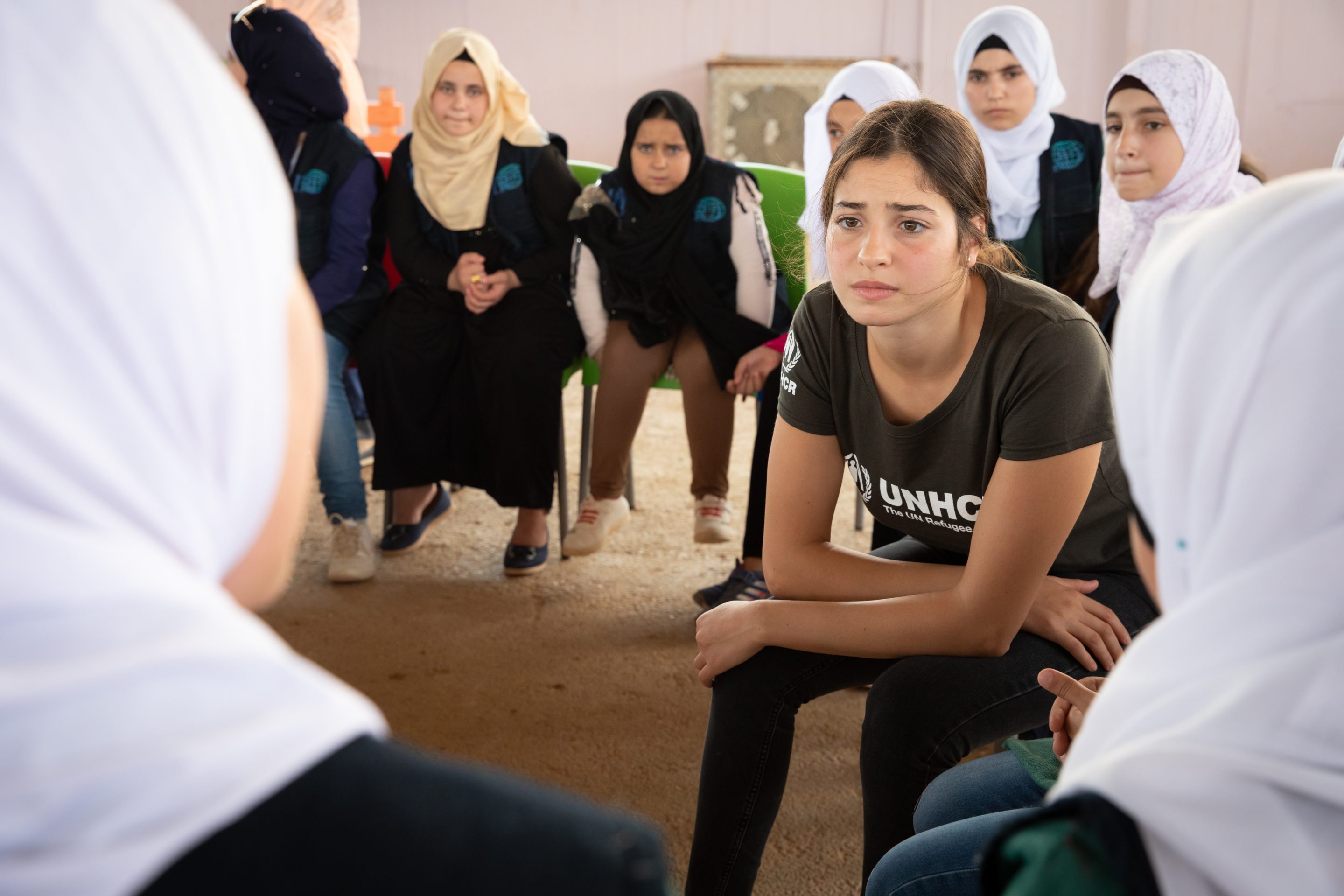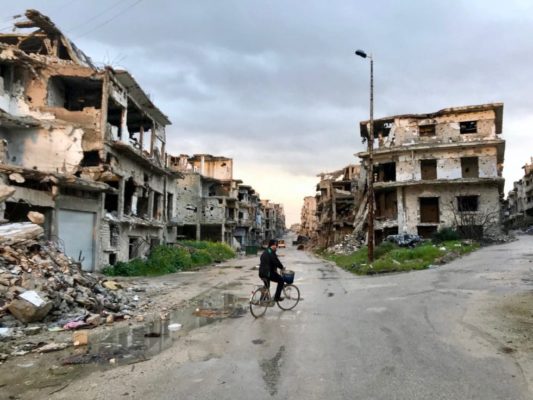
UNHCR Goodwill Ambassador Yusra Mardini meets girls during a visit to Zaatari refugee camp in Jordan. ©UNHCR/Jordi Matas
Olympian and UNHCR Goodwill Ambassador Yusra Mardini on resiliency, Tokyo 2020, and how the Olympics bring people together
By Yusra Mardini, as told to Hannah Scott
Syrian refugee and swimmer Yusra Mardini was appointed the youngest ever UNHCR Goodwill Ambassador in April 2017 after she was selected to compete at Rio 2016 as part of the first Refugee Olympic Team. Yusra advocates for refugees globally through sharing her own inspiring story and has become a powerful voice for the forcibly displaced across the world.
You’ve wanted to be an Olympic swimmer from a young age. What did it mean to you to be a part of the first ever Refugee Olympics team?
When war broke out in Syria I just kept swimming, trying to live like normal, but things got worse and it became harder to get to the pool. I had to stop training for two years — I thought my dream might be over. But my family and I survived war, we built our lives from zero again, and with the team I achieved my Olympic dream — it meant everything.
“Refugees are not a burden but are people who can deliver great skills and energy to society.”
By being both a refugee and an Olympian, you are in a unique position — a position that only ten people have ever experienced. How did you navigate this experience, a path that no one has ever walked before?
Swimming actually helped me to settle in Germany. It helped me build a community and feel like my life was ‘normal’ again. Swimming let me pursue my passion and gave me purpose. Of course training was difficult — I was swimming for up to four hours a day, whilst also learning German and going to school, but it was all worth it.
When you fled Syria, you were just 17. Like thousands of refugees, you ended up making a dangerous trip across the Mediterranean. Can you tell us a bit about what that experience was like?
My sister and I nearly didn’t survive our Mediterranean crossing. Like most of the boats that make that journey, ours was dangerously overcrowded, and the engine stopped working in the middle of the Aegean Sea. The choice was simple: we could either panic and give up, or we could do something about it. My sister and I jumped into the water and pushed until we could push no more. After swimming for more than three and a half hours, we finally arrived in Greece.
We did not leave our homes in search of an easier life where everything is done for us. We fled because of bombs and bullets and persecution. And we deserve an equal chance at rebuilding our lives and taking charge of our own futures. If you want to make this a more equal world, I ask you to help give refugees the opportunities to not just survive, but to thrive.
During Rio 2016, your story was an inspiration to Canada, and many Canadians followed your Olympic journey. Certainly, they will be following you during Tokyo 2020. What does it mean to you to inspire not only refugees, but all people around the world?
I’m training hard for Tokyo 2020, but I’m also trying to make the world a better place for refugees. As a UNHCR Goodwill Ambassador I have a platform to tell my story and the stories of others. I want to inspire refugees to believe in themselves — and encourage wider society to believe in them too. Refugees are just normal people living through traumatic and devastating circumstances, who are capable of extraordinary things if only given a chance.
Is there anything you’d like to share with Canadians about the refugee experience, or that you think they perhaps don’t know?
People don’t realize that for a refugee, the moment when you stop running can be just as hard as the moment when you started. It was only when I had crossed the last border and reached safety that I realized I’d lost more than my home. I’d lost my nationality and my identity. Those around me had lost their sense of purpose and their means of self-respect. They were once doctors, engineers, teachers, and students. Now they were suddenly refugees, reduced to a label. People need to look beyond the label and see the amazing contributions that refugees can make.



